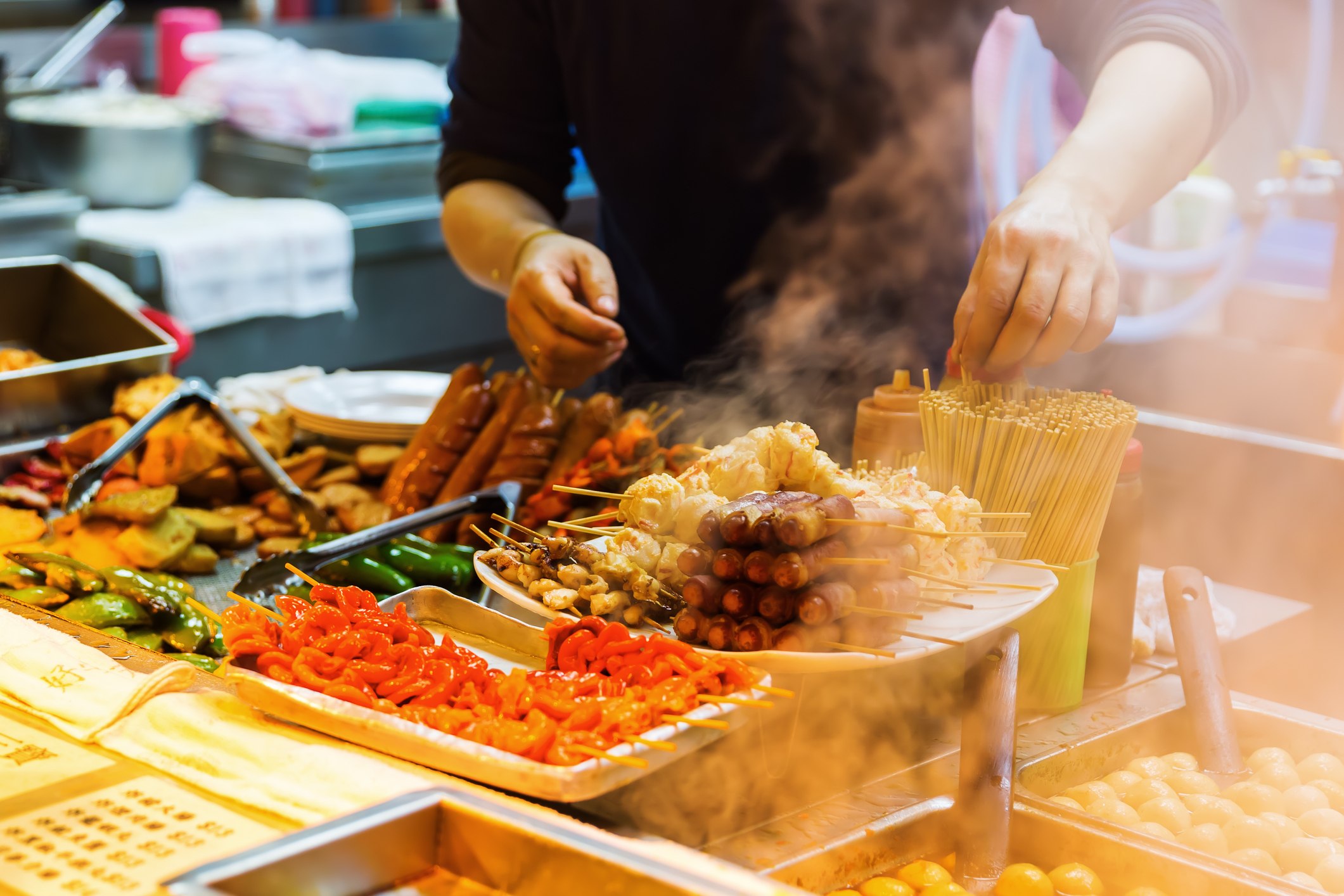Reading time: 5 minutes

Ah, travel—the chance to eat your body weight in exotic delicacies, street food, and mystery meat skewers that definitely looked cooked… until you spent three hours hugging a hotel toilet. Yep, we’re talking about food poisoning^. It’s the not-so-glamorous side of globetrotting, and unfortunately, it's still alive and well.
If your holiday has suddenly turned into a gastro-tour for all the wrong reasons, don’t panic—we’ve got you (and your queasy stomach) covered.^The information on this page should not be considered medical advice, you should seek the advice of your doctor.
First, know the symptoms (besides feeling like death)
Food poisoning is basically your body going “nope” to something you ate. Symptoms usually pop up within hours and can include:- Nausea or vomiting (hello, porcelain throne)
- Stomach cramps (and dramatic groaning)
- Diarrhoea (yep, the squirts)
- Fever or chills
- Weakness or fatigue (from all the above)
What to do (besides regret that dodgy prawn curry)
1. Hydrate like it's your job
You're losing fluids fast, so sip small amounts of water, oral rehydration salts, electrolyte drinks, or even coconut water if you’re somewhere tropical (and still somewhat boujee). Avoid alcohol, coffee, and dairy—we know, it hurts.
2. Rest up
Sorry adventure seekers, now’s not the time to go hiking or go white-water rafting. Lay low, binge some Netflix (or foreign soap operas), and let your body recover.
3. Try the BRAT diet
Bananas, rice, applesauce, toast. These are bland, easy-on-the-guts heroes. Avoid anything spicy, fried, or suspiciously “authentic”.
4. Take medication
Anti-diarrhoea meds like loperamide can help if you absolutely must get on a flight or a long bus ride, but don’t go overboard. Always follow directions—and if you’re unsure, hit up a local pharmacy.
5. Call the emergency assistance team
If you're really struggling to recover from an ailment, get in touch with our Emergency Assistance team. They will be able to offer a helping hand and if need be, point you to the direction of a reputable doctor nearby.
When to see a doctor
If you’ve been down for the count for more than 48 hours, can’t keep fluids down, spot blood (uh oh), or spike a high fever, it’s time to wave the white flag and seek medical help. Your travel insurance may cover medical treatment and even hospital stays—so don’t tough it out to save a buck. That’s what we’re here for.
What about flying with food poisoning?
We won’t sugarcoat it—flying while sick is rough. Airlines have the right to deny boarding if you look too unwell (we know, brutal), and even if you do board, a long-haul with a dodgy gut is no one's idea of fun. Travel insurance may help cover:
- Rebooking costs if a doctor advises you to delay travel
- Doctor’s visits and hospital stays
- Emergency transport if things get dire
So if you find yourself stuck with food poisoning and a flight you can’t stomach (literally), get in contact.
How to avoid the revenge of the buffet
- Wash your hands before eating (yes, Mum was right)
- Drink bottled or filtered water in countries where tap water is a no-go
- Be wary of ice in sketchy places (even your cup of water)
- Eat where it’s busy – high turnover = fresher food
- Peel your fruit, and give anything raw the side-eye
Travel insurance for when you're feeling unwell
You might not be able to stop a sneaky bacteria from gatecrashing your holiday, but travel insurance may help soften the blow. Our policies may include cover for overseas medical treatment, hospital stays, and even getting you home early if it’s all just too much. Bottom line? Food poisoning sucks. But with a little planning, a lot of fluids, and the right travel insurance in your corner, you’ll live to eat another day. Hopefully something that won’t fight back this time.
Cover is subject to the terms, conditions, limits, and exclusions outlined in the PDS.
Get a quick travel insurance quote. We’ve got your (gastro) back.